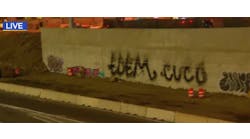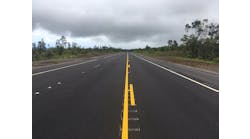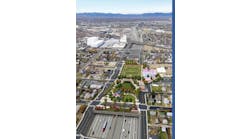It seems like the same old story at this point, but it’s relative commonness in no way detracts from its urgency. Across the nation, lawmakers struggle with the balance of deteriorating roads and a lack of revenue to fix them. This is occurring in the midst of lack of political will—or perhaps too much of the same. Such woes have come to forefront in West Virginia.
Fiscal year 2015 saw a 15.6% increase in revenue aimed at roads work application, it simply was not enough to supersede the $16.6 million shortfall, and according to Deputy Secretary of Revenue Mark Muchow, severance taxes persist in dragging down budget estimates, at this point $60.4 million below estimate. Such figures Those numbers look to irk legislators as they begin to look at more than $1 billion in overall need for the state’s crumbling roadways.
A Blue Ribbon Commission Report on Roads, which was released earlier this year was addressed this week by a state Joint Committee on Finance. “While revenue has been stagnant, transportation costs have not,” said Secretary of Administration Jason Pizatella. Transportation in the state is funded by motor fuel taxes, motor vehicle consumer sales, license and registration fees, and a contribution from the Federal Highway Trust Fund.
Since the report was released, the price of gasoline has dropped and continues to drop, which decreases tax revenues. Wholesale gas tax dropped 1.1 cents per gallon in 2015, stripping away $15 million in highway revenue.
Pizatella said Congress’s inability to pass a long-term highway funding bill has hurt the state’s road building and maintenance capabilities.
In 2019, the West Virginia Turnpike is slated to be turned over to the state division of highways, at a cost of $59 million if tolls are removed from the 88 miles of four-lane highway.
Committee co-chair Sen. Mike Hall (R-Putnam) said lawmakers are going to have to act, but, to no one’s surprise, said a gasoline tax hike is “off the table.” “I’m of the opinion that if you go to the public and say ‘Here’s what we’re going to do and where we’re going to do it’ and it’s diversified enough around the state so that everybody feels like they’re a winner, I think maybe you could push it over the line,” Hall said. “I’m hopeful.”
“Nearly 30 states have passed some form of highway measures in the past two years,” Pizatella said. West Virginia is one of eight states to take no action.


